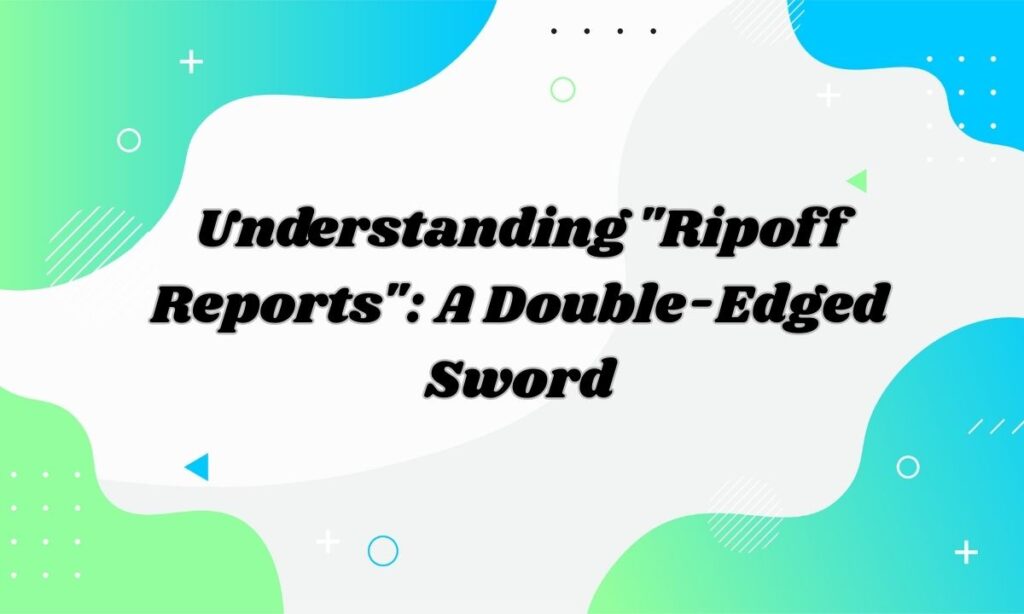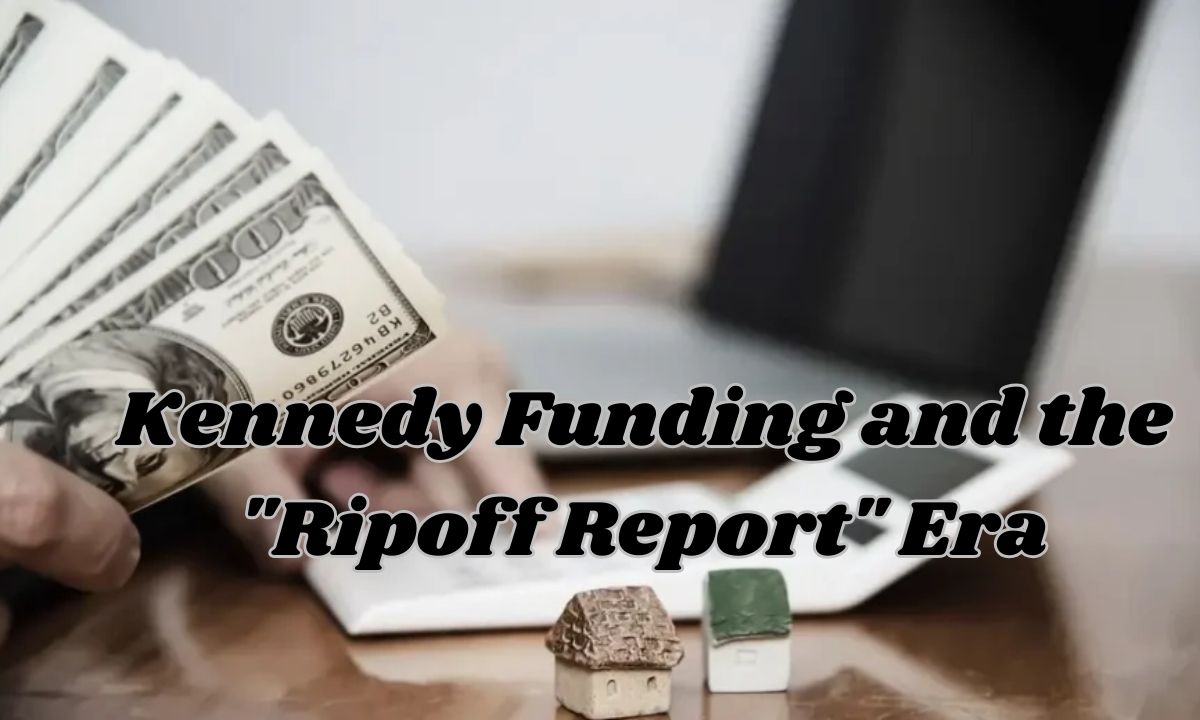Private lending has become a controversial topic in recent years. Kennedy Funding stands at the center of many online debates.
The company faces numerous consumer complaints on platforms like Ripoff Report. But are these allegations fair or simply misunderstandings about private lending practices.
This article explores the truth behind Kennedy Funding’s business model. We’ll examine why financial disputes arise in commercial lending. You’ll learn what borrowers should know before working with any private lender.
The Business of Kennedy Funding: Who They Are
Kennedy Funding operates as a direct lender specializing in bridge loans. The company has been in business since the 1980s. They focus on short-term financing for complex real estate deals.
Unlike traditional banks, Kennedy Funding works with high-risk lending scenarios. They provide asset-backed loans to borrowers who cannot access conventional credit channels. Their typical clients include real estate developers and investors with distressed properties.
The company has funded over $3 billion in loans across multiple states. They handle land acquisition projects, development loans, and refinancing deals. Most traditional banks would reject these types of transactions.
Kennedy Funding’s business model targets borrowers facing time-sensitive situations. These clients often have poor credit scores or unconventional assets. The company fills a gap in the lending market that banks typically avoid.
READ THIS BLOG : Decoding 5StarsStocks.com: A New Frontier in Investor-Centered Market Intelligence
Understanding “Ripoff Reports”: A Double-Edged Sword
Online allegations against financial companies have become common. Ripoff Report allows anyone to post anonymous postings about businesses. The platform lacks fact-checking or moderation systems.
Many complaints about Kennedy Funding center on denied funding applications. Borrowers often express frustration about non-refundable fees paid during the application process. Some claim financial misconduct or misrepresentation of terms.

However, these reports don’t always tell the complete story. Consumer complaints platforms can amplify one-sided narratives. Emotional responses to rejected loans may lead to exaggerated claims.
The anonymous nature of these platforms creates challenges for reputation management. Companies cannot remove posts, even when complaints are resolved or proven false. This creates lasting damage to business reputations.
The Anatomy of a Private Lending Deal
Understanding private lending requires knowledge of the typical process. Most deals begin with an initial inquiry from a borrower. The lender reviews the proposed collateral and financial situation.
If interested, the lender issues a Letter of Intent. This document outlines preliminary terms and conditions. However, it does not guarantee final approval or funding.
Due diligence fees are standard in private lending transactions. These cover appraisals, legal review, and title work. The fees are typically non-refundable regardless of the final outcome.
The underwriting process involves thorough risk assessment of the proposed deal. If the borrower or asset fails to meet lending criteria, the lender may withdraw. This stage often creates the most borrower expectations conflicts.
Successful deals proceed to closing, often faster than traditional bank loans. The closing process can happen within weeks rather than months.
Why Do “Ripoff Reports” Happen in Private Lending?
Financial disputes in private lending often stem from misunderstood expectations. Many borrowers mistake a Letter of Intent for a firm loan commitment. They don’t realize the preliminary nature of initial approvals.
Due diligence fees create another source of conflict. Borrowers may view these as sunk costs when deals don’t close. However, these fees cover real third-party services regardless of the outcome.
The hard money lending industry attracts desperate borrowers facing financial stress. When deals fall through, emotions run high. Disappointed applicants may turn to complaint platforms for relief.
Anonymous postings make it easy to vent frustrations without accountability. The permanent nature of these posts can amplify minor disputes into major reputational issues.
Legal and Ethical Considerations
Despite numerous online allegations, Kennedy Funding maintains regulatory compliance. No federal authorities have found evidence of systematic financial misconduct. The company operates under proper licensing requirements.
Predatory lending accusations require proof of deceptive practices. Simply charging higher interest rates than banks doesn’t constitute fraud. Private lenders legally charge premiums for higher-risk transactions.
Consumer advocacy groups monitor lending practices for actual violations. They distinguish between legitimate business practices and illegal conduct. High fees and strict terms don’t automatically indicate wrongdoing.
The distinction between aggressive marketing and financial misconduct is important. Courts and regulators evaluate actual evidence rather than anonymous complaints.
What Borrowers Should Know Before Using Private Lenders?
Smart borrowers research any private lender thoroughly before applying. Check licensing requirements and regulatory standing with appropriate authorities. Look for verified references from recent clients.
Understand that Letters of Intent are preliminary documents subject to conditional approval. Read all terms carefully and ask questions about unclear provisions. Consider hiring a financial advisor to review complex agreements.
Budget for due diligence fees as part of the total transaction cost. These fees are standard industry practice and typically non-refundable. Don’t proceed unless you can afford to lose these costs.
Prepare complete documentation to avoid delays during the underwriting process. Undisclosed liens, litigation, or environmental issues can kill deals late in the process.
Kennedy Funding’s Public Position
Kennedy Funding maintains that most complaints result from misunderstandings rather than misconduct. The company states that all fees and terms are disclosed in writing. They emphasize that only qualified deals move forward to closing.

The company’s representatives point to their long operating history and substantial loan volume. They argue that successful completion of billions in transactions demonstrates legitimate business practices.
Kennedy Funding acknowledges that high-risk lending naturally creates more disputes than traditional banking. However, they maintain that their practices comply with all applicable lending laws.
The Broader Debate: Is Ripoff Report a Fair Tool?
Consumer complaints platforms serve important functions in protecting consumers. They can expose patterns of abuse and give voice to legitimate grievances. However, they also create problems for legitimate businesses.
The lack of verification requirements allows false or misleading posts. Anonymous postings can be used tactically in business disputes to gain leverage. The permanent nature of posts creates lasting reputational damage.
Reputation management becomes crucial for businesses operating in controversial industries. Companies must balance transparency with protection against unfair attacks.
The challenge lies in distinguishing legitimate warnings from unfair character assassination. Consumers need better tools for evaluating the credibility of online complaints.
Comparative Context: Kennedy Funding and Its Peers
Kennedy Funding is not unique in facing online criticism. Most private lenders in the bridge loan market face similar reputational challenges. Hard money lending companies regularly appear on complaint websites.
The industry’s nature creates inherent conflicts between lender and borrower interests. Short-term financing often involves desperate borrowers who may blame lenders when deals fail.

Kennedy Funding’s scale and visibility make them a larger target for complaints. Higher transaction volumes naturally generate more opportunities for disputes.
Other commercial lending companies face identical challenges with deal disputes and borrower expectations. The problem reflects industry dynamics rather than company-specific issues.
READ THIS BLOG : A Deep Dive Into MyWebInsurance.com Renters Insurance: What You Need to Know in 2025?
When a Complaint Is Worth Investigating?
Not all consumer complaints deserve equal weight. Look for patterns of identical allegations over extended periods. Check for documented legal action or regulatory compliance violations.
Investigate claims of hidden fees or bait-and-switch tactics carefully. Compare multiple sources and look for verified documentation. Single angry posts rarely tell complete stories.
Consider the credibility of complaint sources and their motivation for posting. Anonymous postings without supporting evidence should be viewed skeptically.
Focus on substantiated claims backed by documentation rather than emotional rants. Financial disputes often involve complex circumstances that one-sided posts cannot capture.
Frequently Asked Question
What types of loans does Kennedy Funding specialize in?
Kennedy Funding focuses on bridge loans and asset-backed loans for commercial real estate projects. They handle land acquisition, development financing, and refinancing of distressed properties.
Are due diligence fees refundable if my loan is denied?
No, due diligence fees are typically non-refundable in private lending. These fees cover real costs for appraisals, legal review, and title work regardless of the final decision.
How can I verify if Kennedy Funding is legitimate?
Check their licensing requirements with state regulators and look for verified references from recent clients. Research any regulatory actions or legal findings rather than relying solely on anonymous postings.
What’s the difference between a Letter of Intent and a loan commitment?
A Letter of Intent outlines preliminary terms subject to conditional approval. It’s not a binding loan commitment and funding depends on completing the full underwriting process successfully.
Why do private lenders face more complaints than traditional banks?
Private lending involves high-risk lending to borrowers with limited options. Short-term financing creates time pressure, and hard money lending naturally generates more financial disputes when deals don’t close as expected.
Conclusion
Kennedy Funding operates in a challenging sector of the financial industry. Private lending naturally creates more conflicts than traditional banking due to higher stakes and compressed timelines. While online allegations exist, they must be evaluated in context.
The company continues operating under proper licensing requirements without regulatory sanctions. Their substantial transaction volume suggests legitimate business operations despite consumer complaints. Potential borrowers should approach any private lender with full understanding of the risks and requirements involved.
Due diligence works both ways in private lending relationships. Borrowers must research lenders carefully, but they also must fulfill their own obligations honestly and completely.

jack is an experienced blogger and a passionate wordsmith at Phrase Pioneers. With a keen eye for language and a deep love for writing, she shares insightful posts on grammar, phrases, and the art of communication.














